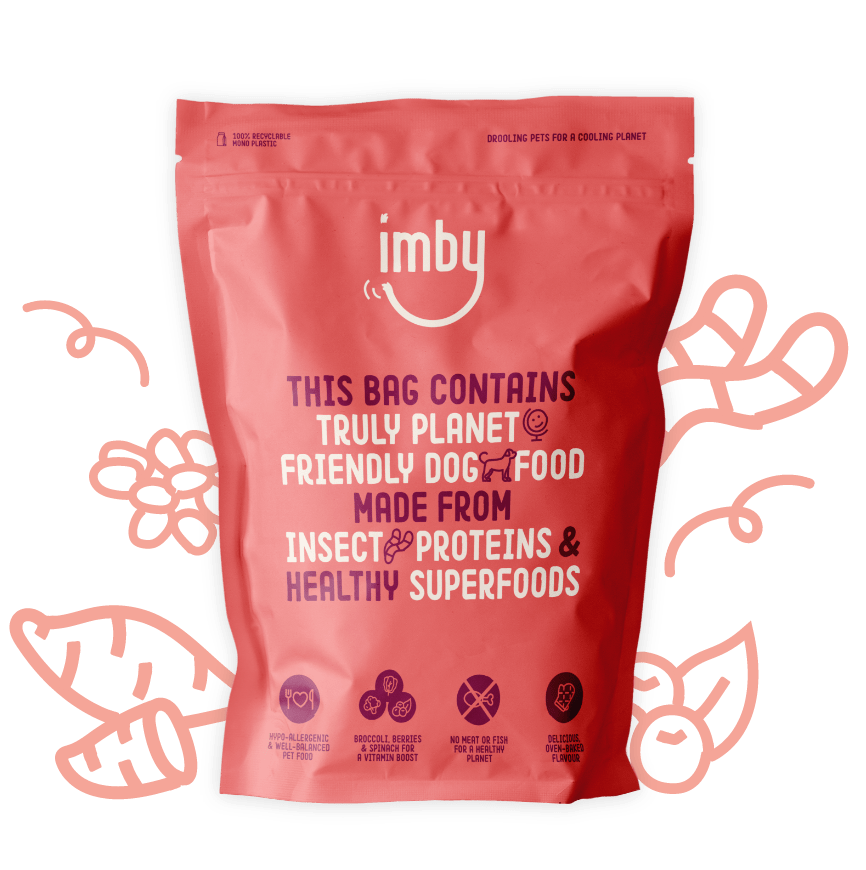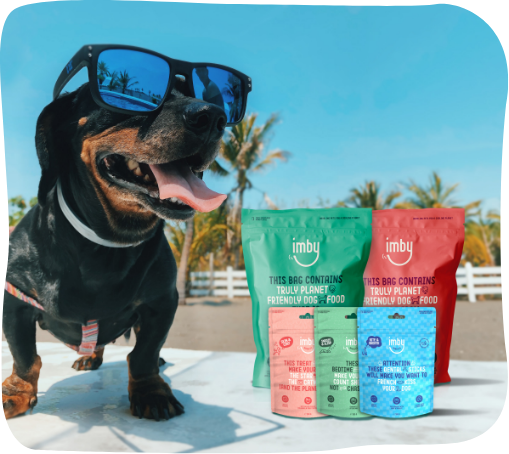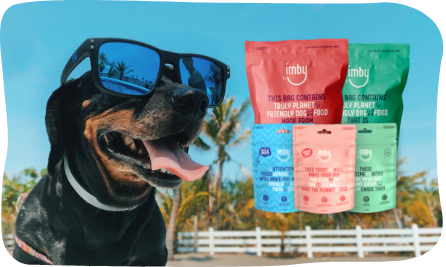Use code CHANGE20 for 20% off your first dog food order!
Use code CHANGE20 for 20% off your first dog food order!



reviews
While yoghurt can be a tasty treat, it doesn’t offer as many health benefits for dogs as it does for humans. So, should you feed it to your pup? Let’s dive into the pros and cons to help you decide.
The word “yoghurt” comes from a term meaning “to thicken” or “congeal.” Made from fermented milk, it has been a staple in human diets for centuries, dating back to the early domestication of milk-producing animals in the Middle East.
The Origins of Yoghurt
Before refrigeration, milk spoiled quickly, so shepherds carried it in sacks made from animal intestines. Inside these sacks, natural gut bacteria caused the milk to sour and curdle, preserving it for much longer. For centuries, yoghurt remained one of the only ways to store milk, apart from drying it.
Yoghurt as a Health Food
Over time, people discovered that yoghurt could help ease digestive issues like diarrhoea and stomach cramps. As it became more widely consumed, people began adding fruits, honey, and sugar, turning it into a popular dessert.
Modern Yoghurt
In the 20th century, scientists confirmed yoghurt’s health benefits, particularly for gut health. Today, most yoghurt is made from cow’s milk, fermented and thickened using beneficial bacteria. It is often flavoured with fruit, spices, or sweeteners, making it a delicious and versatile food enjoyed worldwide.
There are three main types of yoghurt: plain yoghurt, Greek yoghurt, and kefir. While they all share the same basic ingredients, their nutritional profiles and textures vary. Here’s how they compare:
Greek Yoghurt: This type of yoghurt is thicker and creamier because it is strained three times to remove whey—the watery liquid left behind when milk curdles. Greek yoghurt contains:
Plain Yoghurt: This yoghurt is less thick and more fluid because it is only strained twice, leaving some whey in the final product. Compared to Greek yoghurt, it has:
Kefir: The drinkable cousin of yoghurt, kefir offers the same probiotics, calcium, and digestive benefits but in a liquid form:
All three types of yoghurt contain probiotics and calcium, supporting digestion, immunity, and heart health. However, while yoghurt is a nutritious addition to the human diet, it’s not always suitable for dogs. Let’s find out why…
Most dogs are lactose intolerant, while some may have a true dairy allergy. If you’re wondering how this is possible—since puppies drink their mother’s milk—the explanation lies in how their bodies process lactose.
Why Are Most Dogs Lactose Intolerant?
Milk contains a natural sugar called lactose, which requires the enzyme lactase to be properly digested.
Lactose Intolerance vs Dairy Allergy
While lactose intolerance causes digestive discomfort, a dairy allergy is an immune system reaction that can lead to skin issues and more severe symptoms. A vet can determine whether your dog has lactose intolerance or a dairy allergy.
If you notice unusual symptoms after feeding dairy, consult your vet immediately.
Signs of Lactose Intolerance in Dogs:
Signs of Dairy Allergy in Dogs:
Yoghurt can be a healthy addition to a dog’s diet—if they can tolerate it. However, for lactose-intolerant or dairy-allergic dogs, it may cause more harm than good.
Did you know that 70% of a dog’s immune system is in the intestines? Processed foods, inappropriate diets, and certain medications can weaken your dog’s immune defences, making them more vulnerable to illness, environmental stress, and the effects of ageing.
Luckily, yoghurt contains key nutrients that can support your dog’s health, particularly when it comes to digestion, immunity, and skin health.
Probiotics: Gut-Friendly Bacteria
Probiotics are beneficial bacteria and yeasts that live in the digestive system. When consumed in foods like yoghurt, they help boost the immune system and support gut health.
Key probiotics in yoghurt include:
These probiotics help dogs with:
Before adding yoghurt to your dog’s diet, consider the following factors:
By choosing the right type of yoghurt, you can safely offer it as an occasional treat—but always in moderation. ALWAYS read the ingredient label before giving yoghurt to your dog.
If your dog is not lactose intolerant, yoghurt can be a moderate daily treat. The recommended serving size depends on your dog’s weight:
While yoghurt is a tasty snack, it does not provide the full probiotic benefits your dog may need. If your dog requires digestive or immune support, veterinarians recommend using a probiotic supplement specifically formulated for dogs.
Now, let’s explore some fun and delicious ways to serve yoghurt to your dog!
Before introducing any new food to your dog’s diet, always check with your vet.
Ensure that 90% of your dog’s daily calories come from a complete and balanced diet, with only 10% from treats. Exceeding this ratio can lead to obesity or diabetes.
Choose the Right Yoghurt
How to serve it?
Can dogs eat yoghurt? Yes—but only if it’s the right kind. Yoghurt is a great source of protein, calcium, and probiotics, which can support your dog’s immune system and digestive health.
Plain Greek yoghurt is the best option for dogs. To make it even more enjoyable, you can mix in fresh fruit, vegetables, or natural peanut butter for added vitamins, minerals, and antioxidants. Just be sure to avoid artificial sweeteners, added sugars, and high-fat varieties to keep your pup healthy.


reviews




It's all to make your browsing and shopping experience at Imby, a real treat! Read more about it in our Privacy Policy.
4.8 out of 5 stars
based on 1171 reviews



"*" indicates required fields